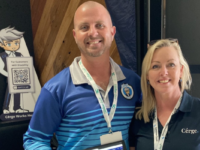Endometriosis Australia, the preeminent peak body for endometriosis in Australia, has partnered with Australian app developer CHARLI to launch the first Australian hybrid technology and real-world period and reproductive health tracking app that will help Australians take control of the diagnosis and management of debilitating and highly undiagnosed conditions.
Developed by leading Australian medical and allied health experts alongside consumers, CHARLI app uses secure AI technology to help Australians track and monitor menstruation, fertility, sexual health, pregnancy, and peri/menopause, and identify pain or possible conditions such as endometriosis.
Endometriosis is a common disease where tissue similar to the lining of the womb grows in other parts of the body. Endometriosis most often affects the reproductive organs, but it can also be found in and around the bowel and bladder, and less commonly, in other parts of the body, including the skin, joints, lungs, and brain. Inflammation and scarring from endometriosis can cause symptoms such as pain, heavy menstrual bleeding, fatigue, anxiety, depression, back pain, and reduced fertility.
A recent study suggests that endometriosis affects one in seven Australian females, and those assigned female at birth, by their 50th birthday.
Associate Professor Anusch Yazdani, Medical Director and co-founder of Endometriosis Australia said that the CHARLI app will help address inequities in healthcare access and diagnostic support, especially in rural and remote populations.
“We know there are many Australians living with the symptoms of endometriosis undiagnosed for years, especially in rural and remote areas,” Yazdani said. “CHARLI aims to address this by identifying abnormal patterns and prompting women to discuss with their doctor.”
Samantha Costa, Clinical Specialist Nurse and Midwife and app co-creator said that CHARLI aims to support Australians in embracing their health every step of the way.
“CHARLI’s your health companion in your pocket and is here to address the shame, silence, and stigma that still exists surrounding female health-related symptoms,” Costa said. “We’re grateful to partner with Endometriosis Australia to support the one in seven Australians living with the condition and provide a quicker diagnosis and easier support.”
CHARLI app identifies abnormal patterns via self-logged data as well as information sources from wearables, such as Apple watch and FitBit. Based on data, the app promotes lifestyle change and alerts to user to talk with their doctor about important reproductive conditions including endometriosis, through user data-driven AI algorithms.
The app also offers a virtual clinic, the CHARLI.clinic, which links users with healthcare professionals, including GPs, specialists, and allied healthcare practitioners such as counsellors, physiotherapists, exercise physiologists. The virtual clinic also provides access to group support, including classes and webinars.
Dr Claudia Duke, a Brisbane-based GP who was part of the development team, said that CHARLI app is a critical evolution for rural and remote populations that have limited access to specialists.
“The app’s development was led by a multidisciplinary team of nurses, GPs, and specialists with experience in the management of the rural and remote patients,” Duke said. “The lived experience of women and girls facing the challenges of puberty, endometriosis, infertility and menopause with limited access to care, contributed to the development of the AI app and virtual clinic.”
CHARLI.research is another component of the app that allows those who wish to participate in third-party approved research projects. Monica Forlano, Chair of Endometriosis Australia says the organisation has always championed research into this disease and empowering those with endometriosis with latest findings:
“To provide better treatment options, we need to unlock critical new information about endometriosis, and researchers simply can’t do it without help and collaboration of those living with the condition,” Forlano said.















